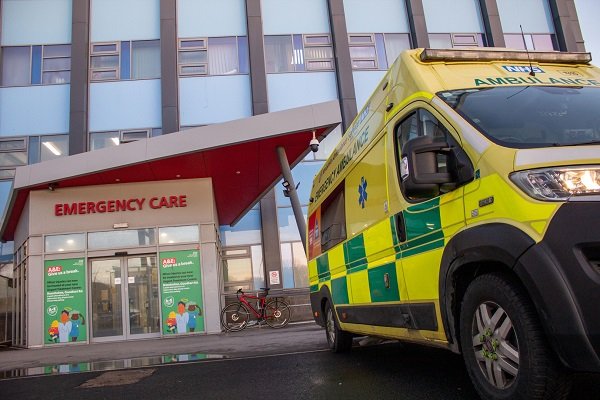‘Only visit A&E in a real emergency’: Hospitals braced for junior doctors’ strikes
UNDER PRESSURE: The A&E department at Hull Royal Infirmary
By Simon Bristow, Co-Editor
Hospital bosses are warning patients to be aware of the impact of strikes by junior doctors over the festive period.
Junior doctor strikes announced for December and January will affect hospitals across the region.
Members of the BMA will take industrial action in the form of a full walkout from 7am on Wednesday, December 20 through to 7am on Saturday, December 23. This will be mirrored by junior doctor members of the HCSA union.
A further six days of strike action are also expected to take place in the New Year, from Wednesday, January 3, 2024 at 7am through to 7am on Tuesday, January 9.
Shaun Stacey, group chief delivery officer for Northern Lincolnshire and Goole NHS Foundation Trust and Hull University Teaching Hospitals NHS Trust, said: “Hospitals in our area are already under pressure as the winter starts to generate a higher number of sick patients and outbreaks of winter viruses become more common.
“Levels of planned activity such as routine surgery are always slightly lower around the Christmas period as people go away or spend time with friends and family, and of course we’re expecting many of our staff to be taking some well-earned annual leave too.
“While we will continue to run as many clinics as we can during the strike periods, we have already had to cancel and reschedule a number of appointments in preparation, and I’d like to apologise to anyone affected for the inconvenience.
“The strikes come at what are traditionally very busy times for us, namely the lead up to Christmas and throughout the first week of January. We are grateful to all of our colleagues who will be supporting [us] throughout the strikes, but the fact remains that our medical staffing levels will be notably reduced.
“For this reason, we have two main asks of the public; firstly we’d like people to use A&E only in the event of a real emergency, in other words, something that’s an immediate threat to life or limb. Routine healthcare or minor ailments which have been niggling for some time should be discussed with a GP, NHS 111 or other primary care professional first, so that our emergency care teams can focus on the really urgent, life-saving work.
“Secondly, not all activity is being halted, so we would ask patients with appointments on any of the forthcoming strike days to attend as planned unless they hear from us to say otherwise. If your appointment is affected, we will seek to contact you to discuss and reschedule as soon as we can.”
Patients can also help themselves and others by:
Ordering repeat prescriptions in plenty of time before the Bank Holidays.
Avoiding hospital – either as a patient or visitor – if suffering Norovirus-type symptoms such as diarrhoea and vomiting.
Keeping a well-stocked medicine cabinet including painkillers, indigestion remedies and diarrhoea tablets.
Using the NHS Emergency Prescription Service if a regular medication runs out completely.
Taking up the offer of Covid and flu vaccinations where these are made.
Familiarising themselves with nearby NHS services which can offer help over the Christmas and new year period; these include all Walk-In and Urgent Treatment Centres and a number of local pharmacies. NHS111 remains available 24 hours a day, 365 days a year for medical advice and signposting, online or over the phone.




